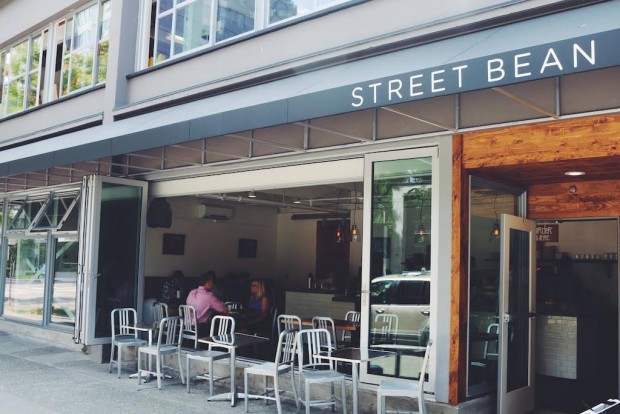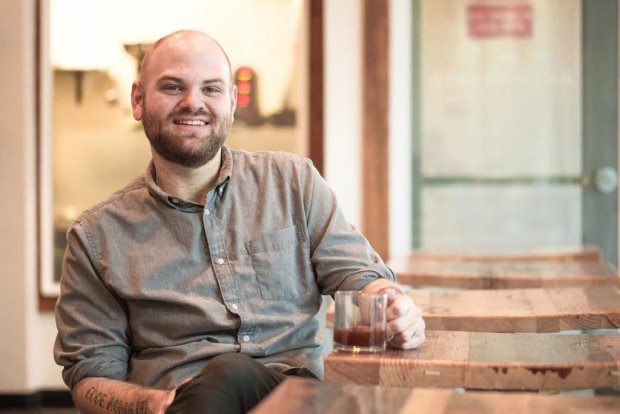One proven effective means of introducing at-risk young adults to a life of structure and productivity is through gainful employment, where self-discipline and social adjustment are rewarded not only with a sense of satisfaction and accomplishment, but with the potential for financial independence, livelihood and security.
It is therefore not uncommon to hear of progressive cafés and restaurants offering on-the-job training and assistance to disadvantaged young people in conjunction with nonprofit organizations dedicated to supporting the at-risk population. Street Bean Coffee in Seattle is one such business, although the nonprofit coffee shop goes several steps further.
Founded in 2009, Street Bean not only trains homeless and otherwise displaced and disadvantaged young adults to work in a coffee shop that offers pourover and espresso, but also offers room and board in a shelter located above the café. Through collaboration with the 37-year-old faith-based New Horizons Ministries, Street Bean takes in people ages 18 to 25, sometimes directly off the street, and offers them almost all the tools they’d need to survive, transition and thrive independently, including temporary housing, life coaching, job training and more.
This past July, Street Bean fired up their newly-acquired Proaster 1.5 in a dedicated roasting room in their café for the first time. A Kickstarter campaign that finished successfully in June provided the capital to build out the roasting room and stock up on green coffee, which were major steps in extending both the café’s own business as well as their professional development programs to include an in-house roastery.
“Right when you walk through the entrance there’s a window there, with our mission statement and everything. You can see the roaster through the window and you can watch me roasting,” Street Bean Head Roaster Matt Hodson told Daily Coffee News. “That will be the training roaster for the apprentices once we start the roasting apprenticeship.” A 10-kilo Proaster is currently en route, which Street Bean has its fingers crossed will be installed and running by the dawn of 2016.
Street Bean’s 10-kilo Proaster will be installed an a separate, dedicated facility for production roasting for their current café as well as potential future cafés, which are under consideration. The company also intends to expand into wholesale, all of which will be incorporated into the job training program. “At the end of the apprenticeship, their last segment will be spending time with me in the production facility, bagging coffee and learning more about the business end of roasting,” said Hodson. “Up until that point they’re learning all the theory and chemistry, hands-on roasting, defects, cupping, things like that.”
Extending a coffee job training program into roasting presents an incredible opportunity for broadening the horizons of a troubled young person. While customer service and food and drink preparation are invaluably marketable skills, roasting introduces a further world of science, agriculture, economics and more. Through relationships with importers and facilitators of direct trade, a trip to origin is another potentially life-changing experience.
“That’s actually part of my bigger vision,” said Hodson. “As we progress and expand and open up more sites, I would eventually like to expose our apprentices to the entire supply chain. Take them down to origin, work on coffee farms, and do all that good stuff.
“Which I’m also hoping for myself very soon,” adds Hodson with a laugh. “It would be good for me to build a little experience before I take them down.” Hodson of course makes an effort to discuss factors along the supply chain with his young coworkers behind the bar as well, explaining how pulling a great shot or pouring a great latte keeps customers coming back, which sells more coffee, which gets Street Bean to buy more coffee, which keeps struggling, hard-working farmers afloat.
Street Bean is Hodson’s first head roaster position. Prior to SB, Hodson honed his craft as a barista for the Spotted Cow Coffee Company in Mill Creek, Wash., where he also did some production roasting work. “I know what I like in coffee. I know how to roast it the way I like it, so that’s a pretty good start for me.”
The shop and burgeoning roastery are only just barely now getting Street Bean onto its feet, financially. The Kickstarter was a boon, as has been some helpful mentions in the media that drive locals as well as tourists from the nearby Space Needle into the shop out of both curiosity and supportiveness. To this point, the company, which pays full price for green coffee and other sundry supplies, has remained largely dependent on support from New Horizons as well as other donations in the form of money, equipment, or discounts. Their Curtis Gold Cup drip brewer was donated, as were their several Baratza grinders, and their Mahlkonig espresso grinders were discounted.
“We are donation-based, there’s a way for you to donate online, but we don’t do pledge drives or anything like that,” said Hodson. “That’s mostly because our partner, New Horizons, has taken care of us financially for quite a few years. If it wasn’t for them, we probably would’ve closed our doors a long time ago.”
Hodson and company are confident that the new in-house roasting initiative will be the final push Street Bean needs into total autonomy as both a business and a growing, successful social enterprise.
“We don’t bring in profit. We bring in income that goes back into the program to benefit the people that we’re trying to reach,” said Hodson, looking forward to the expansion that the 10-kilo Proaster represents. “Maybe we won’t need a partner nonprofit to take care of us. We’ll be able to take care of ourselves, and then maybe at some we’ll be able to be the partner nonprofit taking care of some other small start-up nonprofit.”
Howard Bryman
Howard Bryman is the associate editor of Daily Coffee News by Roast Magazine. He is based in Portland, Oregon.









Comment